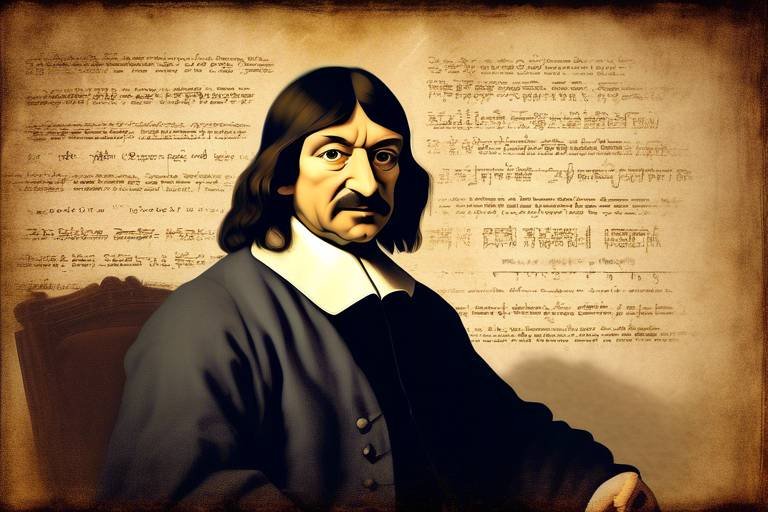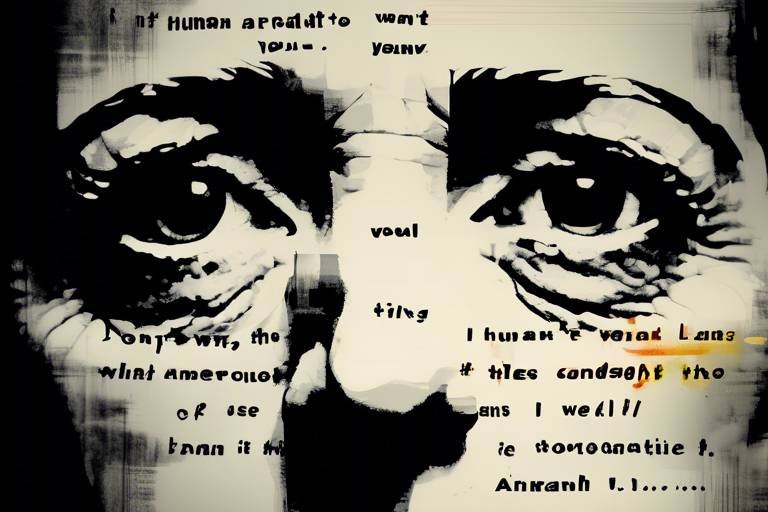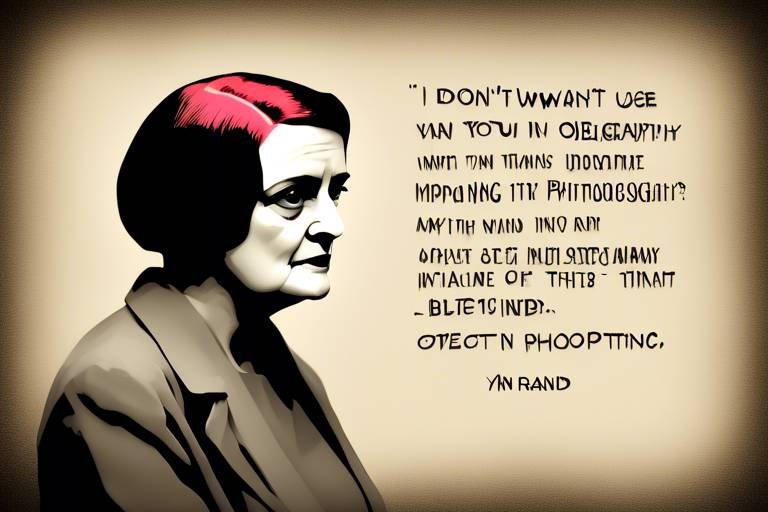Unmasking The Philosophy Behind Nietzsche's Eternal Recurrence
Friedrich Nietzsche, a name that resonates through the corridors of philosophical thought, introduced the concept of eternal recurrence, a notion that challenges our understanding of existence and morality. Imagine living your life over and over again, every decision, every joy, and every sorrow repeating infinitely. This idea may sound daunting, but it serves as a profound lens through which we can examine our lives. In this article, we will dive deep into the essence of Nietzsche's eternal recurrence, exploring its origins, key concepts, various interpretations, and critiques, while also considering its relevance in our contemporary world.
At its core, Nietzsche's eternal recurrence is not just a philosophical theory; it's a challenge to how we perceive time and existence. It forces us to confront the idea that our lives are not linear narratives with a definitive end but rather cyclical experiences that repeat endlessly. This perspective can be both liberating and terrifying, as it compels us to evaluate our choices and their significance in the grand tapestry of existence. Are we living authentically? Are we making choices that we would be proud to repeat for eternity? These questions form the crux of our exploration into Nietzsche's thought.
As we journey through this philosophical landscape, we will uncover the historical influences that shaped Nietzsche's ideas, the cyclical nature of time he proposed, and the implications this has for our understanding of life and morality. We will also examine how eternal recurrence invites us to embrace our existential responsibilities and live with intention. By the end of this article, we hope to provide you with a comprehensive understanding of this complex yet fascinating concept, equipping you with insights that may inspire a shift in your own perspective on life.
Understanding the historical and philosophical roots of Nietzsche's eternal recurrence provides context for its development. This section examines influences from ancient philosophies and Nietzsche's personal experiences that shaped this profound idea.
This section outlines the fundamental principles of eternal recurrence, including its cyclical nature, implications for time, and the challenge it poses to our understanding of existence and life choices.
Exploring how Nietzsche redefines time through the lens of eternal recurrence, this subheading discusses the shift from linear to cyclical time and its philosophical significance for human perception and experience.
The philosophical implications of cyclicality challenge traditional views of progress and meaning in life. This section investigates how embracing cyclical time can alter our approach to existence and decision-making.
Eternal recurrence emphasizes personal responsibility, urging individuals to live as if each moment will repeat infinitely. This part examines how this perspective can inspire authenticity and intentionality in our choices.
Different interpretations of eternal recurrence have emerged over time, reflecting various philosophical and existential viewpoints. This section reviews key interpretations and their implications for understanding Nietzsche's thought.
Nietzsche's concept has faced criticism from various philosophical perspectives. This section explores the main critiques, addressing concerns about nihilism, determinism, and the practical applicability of eternal recurrence in everyday life.
This subheading discusses the tension between nihilistic interpretations and the affirmative potential of eternal recurrence. It examines how Nietzsche's philosophy encourages embracing life despite its inherent challenges and uncertainties.
Exploring how individuals can apply the concept of eternal recurrence in their lives, this section offers insights into fostering resilience, purpose, and a deeper appreciation for the present moment.
- What is Nietzsche's eternal recurrence?
It is the philosophical idea that life repeats itself in the same way, infinitely.
- How does eternal recurrence affect our decision-making?
It encourages us to make choices as if we will live with them eternally, promoting authenticity.
- Is eternal recurrence a form of nihilism?
While it can seem nihilistic, Nietzsche intended it to inspire affirmation of life despite its challenges.

The Origins of Eternal Recurrence
To truly grasp the profound concept of eternal recurrence, one must delve into the historical and philosophical roots that shaped Friedrich Nietzsche’s thoughts. This idea didn’t emerge from a vacuum; it was influenced by a rich tapestry of ancient philosophies, personal experiences, and the cultural milieu of Nietzsche’s time. Imagine standing on the shoulders of giants, peering into the depths of human existence and contemplating the nature of time itself.
Nietzsche was not just a philosopher; he was a keen observer of life, drawing inspiration from various sources. One of the most significant influences on his idea of eternal recurrence can be traced back to the ancient Greeks, particularly the Stoics. They believed in the cyclical nature of existence, where the universe undergoes endless cycles of creation and destruction. This perspective resonates with the concept of time as unending, a theme that Nietzsche would later explore in depth.
Furthermore, Nietzsche’s personal experiences, including his struggles with health and isolation, played a crucial role in shaping his philosophical outlook. The notion of living life as if one would have to relive it over and over again compelled him to confront the meaning of existence. It was not merely an abstract idea; it was a challenge to embrace life with all its chaos and beauty. In a way, Nietzsche's philosophy can be seen as a call to arms, urging individuals to live authentically and with intention.
In the context of eternal recurrence, one might ask: What if every moment we experience is destined to repeat itself? This question highlights the existential weight of Nietzsche’s idea, pushing us to reflect deeply on our choices and actions. It invites us to consider how we might live differently if we were aware that our decisions would echo through eternity.
As we navigate through the implications of eternal recurrence, it’s essential to recognize how Nietzsche’s ideas challenge conventional notions of linear time and progress. Instead of viewing life as a straight path leading to a destination, he encourages us to see it as a cyclical journey, where every moment holds the potential for significance. This shift in perspective not only enriches our understanding of existence but also inspires us to embrace our experiences with a renewed sense of purpose.
In summary, the origins of eternal recurrence are deeply intertwined with ancient philosophies and Nietzsche’s own life experiences. By exploring these roots, we gain a greater appreciation for the complexity of his thought and the enduring relevance of his ideas in contemporary discussions about existence and morality.

Key Concepts of Eternal Recurrence
The concept of eternal recurrence is one of Friedrich Nietzsche’s most provocative and thought-provoking ideas. At its core, it suggests that the universe and our lives within it are not linear but rather cyclical. Imagine living your life over and over again, every joy, every sorrow, every moment repeating infinitely. This notion challenges us to consider the weight of our choices and the significance of our existence. It’s not just a philosophical idea; it’s a call to action, urging us to reflect on how we live our lives.
One of the fundamental principles of eternal recurrence is its cyclical nature. Nietzsche posits that time is not a straight line leading to an endpoint but a circle where events recur endlessly. This shift from a linear to a cyclical understanding of time has profound implications for how we perceive our lives. Instead of seeing our experiences as fleeting, eternal recurrence invites us to recognize that every moment holds the potential for repetition. This perspective can be both exhilarating and daunting, as it compels us to evaluate the meaning we assign to our actions.
Additionally, the implications for time are significant. In a linear framework, we often view time as something that moves forward, where past mistakes can be left behind and future possibilities await. However, if we embrace the idea of eternal recurrence, we must confront the reality that every choice we make is not just a step toward a future but a moment that will echo through eternity. This revelation can be liberating; it encourages us to live authentically and intentionally, knowing that our actions will resonate forever.
The philosophical implications of eternal recurrence challenge the traditional views of progress and meaning in life. In a world governed by linear time, we often strive for improvement and advancement, believing that each step forward brings us closer to a greater purpose. However, Nietzsche’s idea forces us to reconsider this narrative. If life is cyclical, then every moment must be cherished and embraced, regardless of its perceived value. This perspective can lead to a profound shift in how we approach existence.
Furthermore, the notion of existential responsibility emerges strongly from eternal recurrence. Nietzsche urges us to live as if each moment will repeat infinitely, which means we must take ownership of our choices. This responsibility can inspire a sense of authenticity in our lives, pushing us to make decisions that align with our true selves. Instead of succumbing to societal pressures or fleeting desires, we are called to act in ways that we would be proud to repeat for eternity.
By embracing the idea of eternal recurrence, we are also encouraged to cultivate a deeper appreciation for the present moment. The fear of missing out or the anxiety of future uncertainties can often cloud our judgment. However, if we recognize that every experience is significant and will recur, we can shift our focus to the here and now. This perspective fosters a sense of resilience and purpose, reminding us that each moment is not just a passing instance but a vital part of our eternal journey.
In summary, the key concepts of eternal recurrence challenge us to rethink our relationship with time, existence, and responsibility. Nietzsche’s philosophy encourages us to embrace life in its entirety, recognizing that every moment is precious and worth living fully. As we navigate our lives, the idea of eternal recurrence serves as a powerful reminder to make choices that resonate with authenticity and meaning.
- What is eternal recurrence? Eternal recurrence is the philosophical concept proposed by Nietzsche that suggests life and the universe are cyclical, with events repeating infinitely.
- How does eternal recurrence affect our choices? It emphasizes the importance of living authentically, as every choice we make will recur eternally, urging us to make decisions we would be proud to repeat.
- Can eternal recurrence lead to nihilism? While some may interpret it as nihilistic, Nietzsche intended it to affirm life, encouraging individuals to embrace existence despite its challenges.

Time and Cyclicality
Friedrich Nietzsche's concept of eternal recurrence fundamentally transforms our understanding of time. Traditionally, we perceive time as a linear progression—past, present, and future. We often think of our lives as a series of events moving forward, where each moment is a step toward an ultimate goal or conclusion. However, Nietzsche challenges this notion, proposing instead that time is cyclical. Imagine being on a carousel, where each rotation brings you back to the same point, yet with the potential for new experiences each time around. This perspective shifts our focus from a mere destination to the richness of the journey itself.
In this cyclical view, every action, every choice, and every moment carries the weight of eternity. Nietzsche invites us to consider: what if we had to relive our lives over and over again, exactly as they are? This thought experiment forces us to confront our decisions with a newfound intensity. Would we live differently? Would we embrace our joys and sorrows with greater passion? Nietzsche's philosophy suggests that recognizing the cyclical nature of time can lead to a more profound appreciation for the present.
To illustrate this concept, let's break down the implications of cyclicality:
- Reevaluation of Choices: If each moment is destined to repeat, the importance of our choices magnifies. We must ask ourselves if we would be proud to relive our actions.
- Embracing Impermanence: Cyclicality teaches us that while moments may repeat, they are never identical. Each experience is unique, urging us to savor the present.
- Freedom in Acceptance: Understanding that time is cyclical can liberate us from the fear of failure. Instead of viewing setbacks as dead ends, we can see them as part of a continuous journey.
The philosophical significance of this shift cannot be overstated. By embracing a cyclical understanding of time, we begin to see life not as a series of isolated events but as an interconnected tapestry. Each thread, each moment, contributes to a larger picture, inviting us to participate fully in our existence. This perspective fosters a sense of responsibility; if we must relive our lives, we are compelled to live authentically, making choices that resonate with our true selves.
In essence, Nietzsche's redefinition of time through the lens of eternal recurrence invites us to reflect deeply on our existence. It challenges us to break free from the shackles of linear thinking and to embrace the complexity and beauty of life as an ongoing cycle. By doing so, we can cultivate a more meaningful and intentional approach to our everyday experiences.

Philosophical Implications
When we dive into the philosophical implications of Nietzsche's concept of eternal recurrence, we find ourselves in a rich tapestry of thought that challenges our conventional understanding of life, existence, and morality. Imagine standing at a crossroads, contemplating the choices you've made and the paths you've taken. Now, what if I told you that every decision you make could echo throughout eternity? This is the essence of eternal recurrence: a radical invitation to rethink not just our actions, but the very fabric of our lives.
At its core, eternal recurrence posits that time is not a straight line leading to a singular destination, but a cyclical journey that repeats itself infinitely. This shift in perspective can be quite unsettling. It forces us to confront the idea that every joy, every sorrow, and every mundane moment will recur endlessly. How does this knowledge affect our decisions? It compels us to live with a sense of urgency and authenticity, urging us to ask ourselves, "Would I be content to live this moment again, forever?"
Moreover, embracing this cyclical view of time challenges the traditional notion of progress. In a world that often glorifies linear advancement—where each step is seen as a move toward improvement—Nietzsche's philosophy invites us to reconsider what it means to lead a meaningful life. Instead of striving for an elusive goal, we are encouraged to find significance in the present moment. This can foster a deeper appreciation for the everyday experiences that often go unnoticed. Think about it: if you knew that your current life would repeat itself eternally, wouldn’t you savor each moment more fully?
Additionally, eternal recurrence emphasizes the importance of personal responsibility. With the understanding that our choices resonate through infinity, we are called to take ownership of our lives. This perspective can be liberating; it allows us to break free from the shackles of blame and victimhood. Instead of viewing ourselves as passive recipients of fate, we become active participants in shaping our destinies. This transformation can inspire a profound sense of authenticity and intentionality in our actions.
However, this philosophical shift is not without its challenges. The weight of knowing that every decision carries eternal consequences can be daunting. It raises questions about our capacity for change and growth. Can we truly evolve if we are forever bound to our past choices? Nietzsche offers a compelling answer: by embracing the concept of eternal recurrence, we can redefine our relationship with our past. Instead of being haunted by regrets, we can view our experiences as integral parts of our journey, shaping who we are in the present.
In summary, the philosophical implications of eternal recurrence extend far beyond mere contemplation. They invite us to engage deeply with our existence, urging us to live with purpose, authenticity, and a renewed appreciation for the fleeting moments that make up our lives. As we navigate the complexities of our choices and their repercussions, we find ourselves equipped with a powerful tool for personal transformation and a richer understanding of what it means to be human.
- What is Nietzsche's concept of eternal recurrence?
It is the idea that the universe and our lives repeat themselves in an infinite cycle. - How does eternal recurrence affect our decision-making?
It encourages us to live as if each moment will recur infinitely, prompting more intentional choices. - Can eternal recurrence lead to nihilism?
While some see it as a nihilistic perspective, Nietzsche intended it to inspire affirmation of life despite its challenges. - Is eternal recurrence a practical philosophy?
Yes, it can foster resilience and a deeper appreciation for the present moment, helping individuals find purpose in their lives.

Existential Responsibility
Friedrich Nietzsche's concept of eternal recurrence is not just a philosophical musing; it carries profound implications for how we approach our lives. At its core, the idea of eternal recurrence challenges us to consider our choices and actions with a weight that is both liberating and daunting. Imagine waking up each day knowing that every decision you make, every joy you embrace, and every sorrow you endure will repeat infinitely. This notion compels us to take for our lives in a way that few other philosophies do.
When we think about living as if our lives will recur eternally, we are forced to confront the authenticity of our choices. Are we living in accordance with our true selves, or are we merely drifting through life, letting circumstances dictate our paths? This philosophical lens invites us to reflect deeply on the quality of our existence. It asks us whether we would be proud to relive our lives, with all their ups and downs, over and over again. If the answer is no, then perhaps it’s time to reevaluate how we live.
Consider the following aspects of existential responsibility:
- Authenticity: Embracing eternal recurrence encourages us to seek authenticity in our actions. Are we pursuing goals that genuinely resonate with us, or are we conforming to societal expectations?
- Intentionality: Each moment becomes an opportunity to act with intention. If we view our choices as significant, we are more likely to make decisions that align with our values.
- Resilience: Understanding that life is cyclical can foster resilience. Instead of viewing setbacks as failures, we can see them as part of a larger journey, teaching us valuable lessons.
This perspective on responsibility also highlights the importance of mindfulness. Living with the awareness that each moment is precious encourages us to cultivate a deeper appreciation for the present. We start to recognize that our experiences, both good and bad, contribute to our overall narrative. This realization can transform how we engage with the world around us, pushing us to savor each moment rather than rushing through life.
Moreover, Nietzsche’s philosophy invites us to embrace life’s inherent uncertainties. By acknowledging that we cannot control everything, we can focus on how we respond to challenges. This shift in mindset can empower us to take ownership of our lives, making choices that reflect our true desires rather than succumbing to fear or societal pressure.
In essence, eternal recurrence serves as a mirror reflecting our lives back to us. It asks us to examine not just what we do, but who we are. Are we living lives we would choose to repeat? By embracing this existential responsibility, we can inspire ourselves to live with greater purpose, authenticity, and joy.
- What is Nietzsche's concept of eternal recurrence?
It is the idea that the universe and our lives are recurring infinitely in the same form, prompting us to live as if each moment will repeat forever.
- How does eternal recurrence relate to personal responsibility?
It emphasizes the importance of making choices that we would be willing to relive, encouraging authenticity and intentionality in our actions.
- Can eternal recurrence help with resilience?
Yes, viewing life as cyclical can foster resilience by helping us see setbacks as part of a larger journey, rather than as failures.

Interpretations of Eternal Recurrence
The concept of eternal recurrence is not merely a philosophical curiosity; it serves as a lens through which we can interpret our existence and choices. Friedrich Nietzsche’s idea has sparked a myriad of interpretations, each adding layers of meaning to this profound notion. At its core, eternal recurrence challenges us to consider our lives under the premise that every moment we experience will repeat itself infinitely. This radical idea can be interpreted in several ways, each reflecting different philosophical and existential viewpoints.
One interpretation posits that eternal recurrence serves as a test of our values and decisions. Imagine standing at a crossroads in life, faced with a choice that could lead you down one of two paths. If you were to live your life in such a way that every decision you make will recur eternally, would you still choose the same path? This perspective encourages individuals to evaluate their choices critically, fostering a sense of accountability and authenticity. In this sense, eternal recurrence becomes a guiding principle, urging us to live fully and with intention.
Another interpretation revolves around the idea of affirming life, despite its inherent struggles and uncertainties. Nietzsche was deeply concerned with the nihilistic tendencies of his time, where life seemed devoid of meaning. By proposing eternal recurrence, he offers a counter-narrative: instead of succumbing to despair, we should embrace life’s challenges as opportunities for growth. This interpretation suggests that recognizing the cyclical nature of existence can lead to a profound appreciation for the present moment, encouraging us to find joy even in adversity.
Moreover, some scholars argue that eternal recurrence can be seen as a metaphysical hypothesis, one that invites us to ponder the nature of time and existence. In this view, the cyclical model of time challenges the linear progression that dominates our understanding of life. If time is indeed cyclical, then every moment is interwoven with the past and future, creating a rich tapestry of experiences that shape our understanding of reality. This interpretation encourages us to rethink our relationship with time and, in turn, our approach to life itself.
In contemporary thought, interpretations of eternal recurrence have expanded into various fields, including psychology and existential therapy. Psychologists have begun to explore how this concept can influence mental health and well-being. For instance, by contemplating the idea of eternal recurrence, individuals may cultivate resilience and a sense of purpose. The realization that each moment is significant can lead to a more profound appreciation of life, fostering a mindset that values presence over distraction.
Ultimately, the interpretations of eternal recurrence are as diverse as the individuals who engage with them. Whether viewed as a philosophical challenge, a call to affirmation, or a metaphysical inquiry, Nietzsche’s idea compels us to confront our existence with courage and authenticity. As we navigate our lives, the question lingers: how would we live differently if we truly believed that every moment would recur forever?
- What is the main idea of Nietzsche's eternal recurrence?
The main idea is that every moment in our lives will repeat infinitely, urging us to live as if we are making choices that will echo throughout eternity. - How does eternal recurrence affect our decision-making?
It encourages us to reflect deeply on our choices, promoting accountability and authenticity in our actions. - Can eternal recurrence lead to nihilism?
While some may interpret it as nihilistic, Nietzsche intended it as a means to affirm life and find meaning despite its challenges. - How can I apply eternal recurrence in my daily life?
By embracing the idea that each moment matters, you can cultivate resilience, purpose, and a deeper appreciation for the present.

Critiques of Eternal Recurrence
Friedrich Nietzsche's concept of eternal recurrence has sparked a myriad of debates and critiques since its inception. While many celebrate it as a profound philosophical insight, others raise significant concerns that challenge its validity and applicability in the real world. One of the primary critiques revolves around the notion of nihilism. Critics argue that if life is destined to repeat itself endlessly, it could lead to a sense of futility. After all, if every joy, sorrow, and experience is bound to reoccur, what meaning can we derive from our actions? This perspective can easily veer into nihilism, where individuals may feel disillusioned about the importance of their choices.
However, Nietzsche himself sought to counter this nihilistic interpretation. He emphasized that the eternal recurrence should not be seen as a burden but rather as an invitation to affirm life. This tension between nihilism and affirmation is crucial in understanding the full scope of Nietzsche's thought. Embracing the idea that we must live each moment as if it will recur infinitely can serve as a powerful motivator to infuse our lives with meaning and intention.
Another critique stems from the idea of determinism. If existence is cyclical and predetermined, where does that leave human free will? Critics question whether individuals can truly make choices or if they are merely actors in a never-ending play. This deterministic view can be disheartening, leading some to feel that their lives are scripted rather than shaped by personal agency. Yet, Nietzsche's philosophy challenges this notion by encouraging individuals to take responsibility for their actions, suggesting that our choices matter profoundly, even in the face of eternal recurrence.
Moreover, practical applicability poses another significant concern. How can one realistically integrate the concept of eternal recurrence into everyday life? While it sounds compelling in theory, many find it challenging to live as if each moment is eternal. This raises questions about the feasibility of this philosophy in a fast-paced, modern world where distractions abound. Nietzsche's call to live authentically and intentionally can feel overwhelming, especially when societal pressures often encourage a more superficial existence.
Despite these critiques, there are numerous ways to engage with the idea of eternal recurrence. By fostering resilience and a deeper appreciation for the present moment, individuals can find ways to incorporate this philosophy into their lives. For instance, reflecting on life choices and their implications can help cultivate a sense of purpose, even amidst uncertainty. Ultimately, while critiques of eternal recurrence provide valuable insights, they also challenge us to explore the depths of our existence and the meaning we ascribe to our experiences.
- What is eternal recurrence? Eternal recurrence is a philosophical concept proposed by Nietzsche, suggesting that the universe and our lives are eternally recurring in a cyclical manner.
- How does eternal recurrence relate to free will? While some interpret eternal recurrence as deterministic, Nietzsche encourages personal responsibility, suggesting our choices still hold significance.
- Can eternal recurrence lead to nihilism? Yes, some critics argue it can lead to nihilism, but Nietzsche aimed to promote life affirmation through this concept.
- How can I apply eternal recurrence in my life? By embracing the idea that each moment is significant, you can cultivate a more intentional and meaningful existence.

Nihilism vs. Affirmation
The philosophical landscape surrounding Nietzsche's concept of eternal recurrence is often marked by a profound tension between nihilism and affirmation. On one hand, nihilism presents itself as a bleak worldview, suggesting that life lacks inherent meaning or purpose. This perspective can lead to feelings of despair, as individuals grapple with the idea that their actions and experiences are ultimately insignificant in the grand scheme of things. Imagine standing on the edge of a vast, empty abyss, where every choice you make feels like a drop into an unending void. This is the essence of nihilism—a chilling recognition of life's transience and the futility of seeking lasting value.
Conversely, Nietzsche's philosophy invites us to embrace affirmation, a radical acceptance of life in all its chaotic beauty. Instead of succumbing to despair, Nietzsche challenges us to live as if we would willingly relive our lives over and over again, embracing every joy, sorrow, triumph, and failure. This is not merely a call to endure existence but to celebrate it. Picture a vibrant tapestry woven from the threads of our experiences, each moment contributing to a larger, dynamic picture that is uniquely our own. By affirming our lives, we reject the nihilistic notion that nothing matters, choosing instead to find meaning in the act of living itself.
To illustrate this dichotomy further, consider the following points:
- Nihilism: Emphasizes the absence of meaning, leading to apathy and disengagement.
- Affirmation: Encourages embracing life with all its complexities, fostering a sense of purpose and intentionality.
Nietzsche’s eternal recurrence serves as a powerful antidote to nihilism. By challenging us to consider the possibility of reliving our lives infinitely, he pushes us towards a more engaged and meaningful existence. The idea is not just a thought experiment; it is a call to action. If we live as though our choices will echo through eternity, we begin to see the weight of our decisions, prompting us to cultivate a life rich with authenticity and purpose.
In this light, the struggle between nihilism and affirmation can be viewed as a transformative journey. While nihilism may initially seem like an insurmountable barrier, the path to affirmation reveals itself through the act of embracing our experiences, both good and bad. It’s about finding joy in the mundane and recognizing that, even in suffering, there is an opportunity for growth and understanding. This perspective not only enriches our lives but also empowers us to face challenges with resilience and optimism.
Ultimately, the choice lies in our hands. Will we succumb to the abyss of nihilism, or will we rise to affirm the beauty of existence? Nietzsche's eternal recurrence invites us to step boldly into the latter, reminding us that life, with all its ups and downs, is a gift to be cherished and lived fully.
- What is eternal recurrence? Eternal recurrence is a philosophical concept proposed by Nietzsche, suggesting that the universe and our lives repeat themselves infinitely in the same form.
- How does nihilism relate to eternal recurrence? Nihilism posits that life lacks meaning, while eternal recurrence challenges us to find meaning by living as if our choices will repeat forever.
- Can embracing affirmation change my perspective on life? Yes, embracing affirmation can lead to a more meaningful and intentional life, encouraging you to appreciate every moment.

Practical Applications
When we dive into the concept of eternal recurrence, it might seem like a philosophical exercise reserved for the ivory towers of academia. However, its implications stretch far beyond the realms of theory and can be woven into the fabric of our daily lives. Imagine waking up each day with the mindset that every moment, every decision, and every experience will repeat infinitely. How would that change the way you live? This is where the practical applications of Nietzsche's idea come into play.
First and foremost, embracing eternal recurrence can significantly enhance our mindfulness. By recognizing that each moment is precious and potentially eternal, we can cultivate a deeper appreciation for the present. Instead of rushing through life, we might find ourselves savoring the little things—like the taste of our morning coffee or the laughter shared with friends. This heightened awareness can lead to a more fulfilling life, as we learn to find joy in the now rather than postponing happiness for some future goal.
Moreover, eternal recurrence encourages us to take responsibility for our choices. If every action we take is destined to repeat, we must consider the implications of our decisions more carefully. This can lead to a profound sense of authenticity in our lives. Are we living in a way that aligns with our true selves? Are we making choices that we would be proud to repeat over and over again? This perspective can help us prioritize what truly matters, pushing us to live with intention and purpose.
To illustrate this further, let’s consider a few practical steps we can take to integrate the philosophy of eternal recurrence into our lives:
- Reflect Daily: Set aside time each day to reflect on your choices and experiences. Ask yourself if you would be content to relive that day for eternity. This reflection can help clarify what changes you might want to make.
- Practice Gratitude: Cultivating gratitude can shift our focus from what we lack to appreciating what we have. By acknowledging the beauty in our lives, we can foster a sense of fulfillment.
- Embrace Challenges: Instead of avoiding difficulties, view them as opportunities for growth. If you know you'll face the same challenges again, how can you approach them differently to grow stronger?
Additionally, eternal recurrence can inspire us to foster resilience. Life is filled with ups and downs, and knowing that we will encounter similar situations repeatedly can empower us to face challenges head-on. Instead of succumbing to despair during tough times, we can learn to embrace them as part of our journey, ultimately leading to personal growth.
Lastly, this philosophy invites us to cultivate a deeper sense of community. When we recognize that our actions impact not only our lives but also the lives of others in a cyclical manner, we might find ourselves more inclined to act with compassion and kindness. After all, if we are to relive our lives over and over, wouldn’t we want to create a positive ripple effect in the world around us?
In conclusion, the practical applications of Nietzsche's eternal recurrence extend far beyond mere philosophical contemplation. By integrating this concept into our daily lives, we can enhance our mindfulness, take responsibility for our choices, foster resilience, and cultivate a deeper sense of community. It challenges us to live authentically and intentionally, making each moment count as if it were to echo through eternity.
- What is eternal recurrence? Eternal recurrence is a philosophical concept proposed by Friedrich Nietzsche, suggesting that the universe and our lives repeat infinitely in a cyclical manner.
- How can eternal recurrence affect my daily life? It encourages mindfulness, personal responsibility, and resilience, prompting individuals to live authentically and appreciate the present moment.
- Is eternal recurrence a pessimistic view of life? While some may interpret it as nihilistic, Nietzsche intended it to be an affirmation of life, encouraging individuals to embrace their existence fully.
Frequently Asked Questions
- What is Nietzsche's concept of eternal recurrence?
Nietzsche's eternal recurrence is a philosophical idea suggesting that the universe and our lives repeat infinitely in the exact same way. Imagine living your life over and over again, every joy and every sorrow, with no change. This concept challenges us to consider how we live our lives and the choices we make.
- How does eternal recurrence influence our understanding of time?
Eternal recurrence shifts our perception of time from a linear progression to a cyclical one. Instead of viewing time as a straight line with a beginning and an end, Nietzsche encourages us to see it as a loop, where every moment recurs. This can profoundly affect how we approach our decisions and the significance we place on our actions.
- What are the philosophical implications of embracing cyclical time?
Embracing cyclical time can challenge traditional notions of progress and meaning. If every moment is destined to repeat, it prompts us to reflect on the value of our experiences and choices. It suggests that life is not merely about moving forward but about finding meaning in the present, making every moment count.
- How does eternal recurrence relate to personal responsibility?
Eternal recurrence emphasizes the importance of personal responsibility by urging individuals to live as if each moment will repeat forever. This perspective can inspire authenticity and intentionality, motivating us to make choices that align with our true values and desires, rather than simply going through the motions.
- What are some common critiques of Nietzsche's eternal recurrence?
Critiques of eternal recurrence often revolve around concerns of nihilism and determinism. Some argue that the idea can lead to a sense of despair, as it implies a lack of true freedom or change. Others worry about its practical applicability in everyday life, questioning how one can truly embrace such a concept.
- Can eternal recurrence be applied in practical ways?
Yes! Individuals can apply the concept of eternal recurrence to foster resilience and purpose in their lives. By viewing each moment as significant and worthy of affirmation, we can cultivate a deeper appreciation for the present and inspire ourselves to live authentically and fully.
- How does Nietzsche reconcile nihilism with the affirmation of life?
Nietzsche navigates the tension between nihilism and affirmation by encouraging us to embrace life’s inherent challenges. He suggests that rather than succumbing to despair, we can find strength in accepting our circumstances and affirming our existence, even in the face of suffering and uncertainty.



















